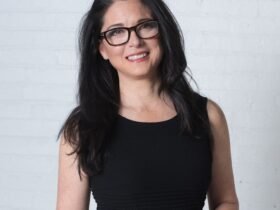Juneteenth 2025 marks 160 years since the last enslaved people in the U.S. were declared free — but for many Black Americans, true economic freedom remains out of reach.
Juneteenth 2025 marks 160 years since the last enslaved people in the U.S. were declared free — but for many Black Americans, true economic freedom remains out of reach.
Today, Black Americans — especially Black women — still face steep financial disadvantages, from stark pay gaps to limited access to wealth-building tools. Experts say, the key to closing those gaps is teaching Black children the importance of saving early; an effort that can change the trajectory for the next generation.
FREEDOM DECLARED, BUT NOT DELIVERED
June 19, 1865, two and a half years after the Emancipation Proclamation, all previously enslaved people in Texas were declared free. For Black communities, this day — termed Juneteenth — has historically been a celebration of freedom. At that moment, Black people may have been physically free — but they were immediately oppressed by extreme poverty and financial insecurity. Over a century later, on Juneteenth 2025, Black Americans are still shouldering the economic burden of slavery.
“The wealth gap is intentional. Systemic racism is daily actions that put Black people at a disadvantage on purpose,” says Tiffany Aliche, financial educator and founder of The Budgetnista.
BLACK WOMEN FACE THE WIDEST GAPS
On Juneteenth 2025, how big of a disadvantage? Studies have shown that on average, Black women in the U.S. are paid 36% less than white men and 12% less than white women. The gap is even greater for Black women with bachelor’s degrees. They earn 36% less than white men with bachelor’s degrees on average.
Although these numbers are hard to read, there are efforts being made to bridge those gaps.
ON JUNETEENTH 2025 AND BEYOND, BUILDING WEALTH STARTS EARLY
One organization leading the charge is Goalsetter, a goal-based savings and financial literacy app that has worked in recent years to get more Black children signed up for savings accounts. Why is this so important? Children who have savings accounts in their names — regardless of how much is in them — are 6 times more likely to go to college, and 4 times more likely to own stocks as young adults.
In recent years, Goalsetter, a Black-owned company, has worked to raise awareness about the importance of Black families signing their kids up for their own bank accounts. “Achieving financial independence for the Black community means that we can participate in the economy at the same level that everyone else participates in the economy,” explains Tanya Van Court, founder and CEO of Goalsetter.
CHANGING THE NARRATIVE, ONE GENERATION AT A TIME
One of the best ways to create change as part of Juneteenth 2025 and beyond, Van Court says, is to make sure Black children are on a path towards financial independence.
“This movement to get Black families saving — it’s not just about $25 in a savings account. It’s about changing the trajectory of the next generation of kids because we have shifted their mindset away from being the ones who fuel the American economy with the dollars they spend, to being the ones who build wealth for themselves and the community they’re a part of,” says Van Court.
“So much can happen in a generation,” adds Aliche.
READ MORE ON HERMONEY:
JOIN US: We’re changing our relationships with money, one woman at a time. Subscribe to HerMoney today.



















Leave a Reply